Heart and sole
Updated: 2015-02-06 07:53
By Sophie He(China Daily USA)
|
||||||||
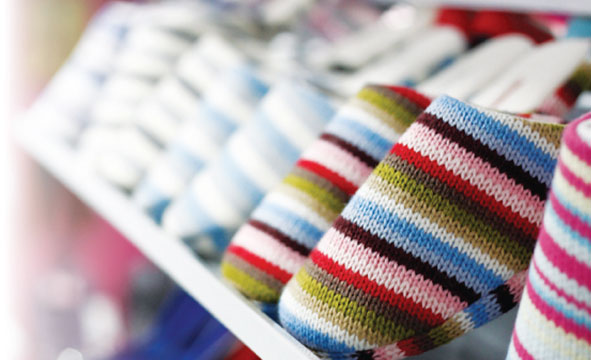 |
|
Goddess' slipper brand "Betta" has tasted success in Hong Kong and is carried by leading retailers such as Francfranc and Wing On. |
Goddess founder tells of starting young and finding success with the help of unwavering persistence and a focus on the basics. Sophie He gets the story.
William Wong Wai was just 25 when he set up Goddess International Ltd.
The slipper manufacturing company established in 1994 now boasts its own brand and annual revenue of around HK$100 million.
Founder and chairman Wong started from scratch. After dropping out of college in Melbourne, Australia, in 1992, he returned to Hong Kong and worked for nearly three years at a Hong Kong-owned slipper factory in Shenzhen.
"The factory was making leather household slippers, and I was in charge of purchasing raw materials from Chinese mainland suppliers," Wong told China Daily. "That's how I got familiar with manufacturing procedures."
In 1994, then 25-year-old Wong decided to start his own business. Despite his youth, he was very confident from the start as he already knew quite a few suppliers and several customers by that time. "How hard could it be," he thought.
With HK$60,000 as capital, made up of all of his savings plus some money from his parents, Wong launched Goddess International Ltd.
Originally, it was a trading firm with Wong both the boss and only employee.
He purchased slippers from mainland suppliers and sold to overseas buyers.
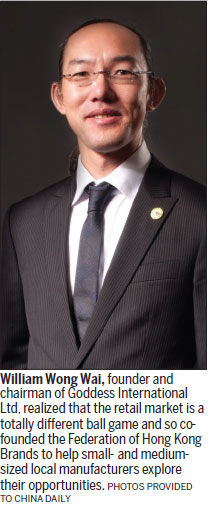
"The firm almost closed after six months," said Wong, as the HK$60,000 ran out very quickly after he rented a small office, paid deposits and purchased office supplies.
Four months later, Wong did not even have the money to pay rent for another month.
Beginner's luck
"But I was incredibly lucky, as the landlord of my office, an old man who had been doing business in South America for many years, became interested in my products when he came to the office to collect rent."
Wong's landlord was interested in canvas sneakers, so Wong purchased several containers of sneaker inventories from different suppliers for the landlord to sell in South America.
"My landlord was kind enough to pay me up front as I didn't have any money to pay the suppliers," said Wong.
The deal actually saved Wong's company, as the money he earned from his landlord helped Goddess survive. Later, Goddess attended several exhibitions, got in touch with more clients from overseas, and was finally on track for its trading business.
In the 1990s, many mainland State-owned enterprises were undergoing reformation that allowed them to cooperate with private companies. Goddess tried to cooperate with a few factories, but that did not work out too well.
"As these factories needed to get enough orders to survive, they would take other jobs that sometimes impacted the production of our own orders," Wong explained.
These unpleasant experiences saw him make up his mind about opening his own slipper factory. In 1997, Wong established a factory in Chongqing with 17 workers, producing slippers mainly sent to buyers in the US.
After the company started getting stable orders, Wong moved the factory to Dongguan, Guangdong province, and expanded its scale by hiring a total of 100 workers.
Since then, Goddess has continued to expand and by 2003, the factory already had 700 workers. But during the economic downturn caused by SARS, the factory was scaled down to around 350 staff.
"At that time, I started to think that the way that we run factories in Dongguan may not last. On the one hand, costs in Guangdong kept going up, while on the other, most of our workers were not from Guangdong - they had left their homes and traveled long distances to work in Dongguan," said Wong, adding that he kept searching for a good place to relocate his factory for many years.
In 2002, Wong and a local partner opened a factory in Suzhou, Jiangsu province.
The venture went very well, but along with economic growth in Suzhou, costs rose very quickly and even surpassed those in Guangzhou. Wong gave up on the factory after a couple of years.
Later, he also opened a factory in Liuzhou, the Guangxi Zhuang autonomous region. As it is an inland city, labor costs are not too high there. Wong also chose Liuzhou as he believes that workers in the city, especially female workers, could work near their home.
But the results were unsatisfactory, as workers in Liuzhou lacked skills as well as efficiency, compared with those in Dongguan. This significantly impacted the company's output, according to Wong.
Finally, at the end of 2011, the Goddess factory was moved to Yunyang in Chongqing, with around 300 workers.
Last year, Goddess purchased a plot in Sichuan province and started to build a plant, with 800 to 1,200 workers expected to be hired after it is completed.
In addition to exploring the manufacturing industry, Wong is also keen on growing in the retail sector.
"I believe that manufacturing alone cannot spell success," said Wong. He considers 2002 as a turning point for the company, as that was the year Goddess cooperated with an Australian family firm and registered the slipper brand "Betta" on the Chinese mainland.
Since 2002, Goddess has produced its own slippers under the "Betta" brand and sold through retail channels.
Its retail business has been successful in Hong Kong, where the slippers are selling at HK$100 to HK$200 a pair at Francfranc, Wing On, Goods of Desire as well as Design Gallery.
Marketing lesson
But unfortunately, things have not been going too well on the mainland.
After trying to sell its slippers in major shopping malls and then selling them through major supermarket chains like Carrefour, Walmart and China Resources Vanguard, Goddess this year has decided to pull out of these channels and focus on selling through e-commerce platform Tmall.com.
"As a manufacturer, I can say that it is not easy to make the switch to becoming a retailer," said Wong. "After so many years in the retail industry, I am still learning, about marketing skills, about how to build and operate our own brand ... (there is) so much to learn about retail." He said that the company made quite a few mistakes in the retail market on the mainland, one of them being entering supermarkets to sell its slippers.
"The average price of our own slippers selling on the mainland is between 60 and 80 yuan ($9.6-12.8). We actually paid a lot in order to get into those supermarkets, but sales were not good and they returned large amounts of our products at the end of every year."
Wong said that mainland consumers do not usually go to supermarkets to buy expensive slippers, and sending its products there is a mistake the company made due to lack of understanding of the retail market, and the company has paid the price for the mistake.
"We are now focusing on our Tmall store, and I'm glad to see that it is doing very well," said Wong, adding e-commerce is a rising trend on the mainland and he sees great potential in this enormous online market.
Reviewing his own journey as an entrepreneur, Wong said that it was not easy to start a business, and he warns young people in Hong Kong who want to start their own business to be prepared to face difficulties.
"To me, the most important things for entrepreneurial success are persistence and the will to keep on learning," said Wong.
Contact the writer at sophiehe@chinadailyhk.com

 Across America over the week (from Jan 29 to Feb 5)
Across America over the week (from Jan 29 to Feb 5)
 Bringing Hollywood into your home
Bringing Hollywood into your home
 Snow turns village in Xinjiang into a fairy world
Snow turns village in Xinjiang into a fairy world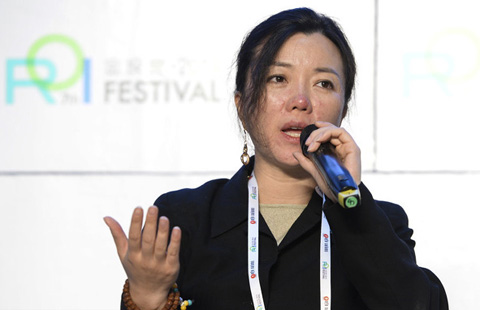
 Global firms that changed top execs after China biz hurdle
Global firms that changed top execs after China biz hurdle
 65th Berlinale International Film Festival opens
65th Berlinale International Film Festival opens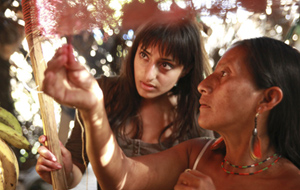
 Young TV producer crowned Queen of Amazon tribe
Young TV producer crowned Queen of Amazon tribe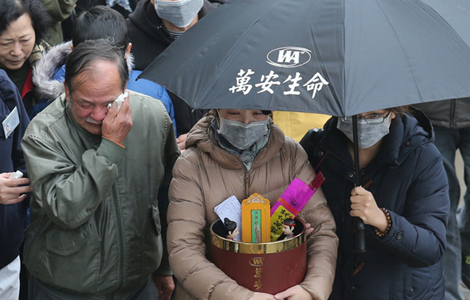
 Family members mourn air crash victims
Family members mourn air crash victims
 Australian journalist Peter Greste arrives home
Australian journalist Peter Greste arrives home
Most Viewed
Editor's Picks

|

|

|

|

|

|
Today's Top News
Chinese Americans growing as spenders
Tax, tech rules 'test' US-China relations
Train-makers set for sales boost abroad
China's view of social media dims: report
Yum and McDonald's profits drop after supplier scandal
Australia lawmakers set to vote on PM Abbott's future
4 children killed in Texas house fire
Canadian detained on suspicion of stealing state secrets
US Weekly

|

|